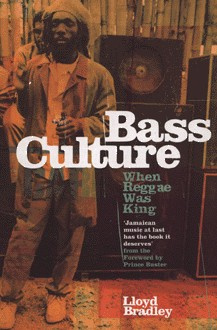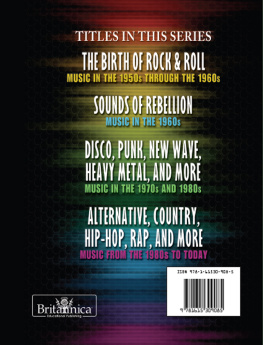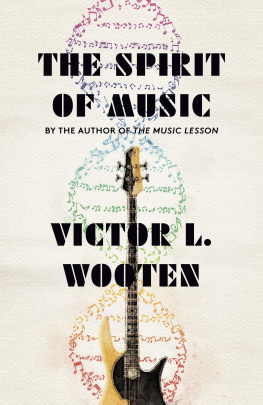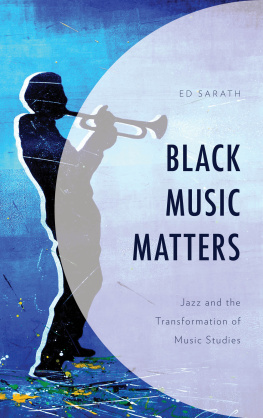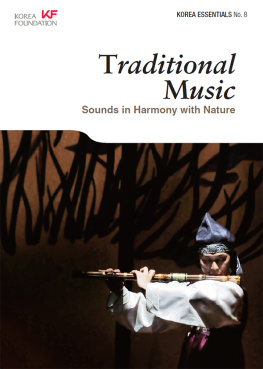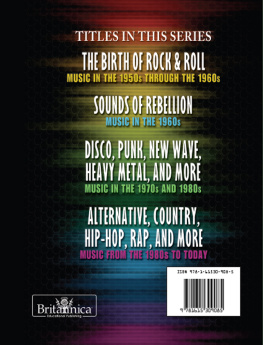SOUNDS LIKE LONDON
100 Years of Black Music in the Capital
Lloyd Bradley
SOUNDS LIKE LONDON
100 Years of Black Music in the Capital

SOUNDS LIKE LONDON
First published in the UK in August 2013 by
SERPENTS TAIL
3A Exmouth House
Pine Street
London EC1R oJH
www.serpentstail.com
All text copyright Lloyd Bradley 2013
10 9 8 7 6 5 4 3 2 1
Printed and bound in Great Britain by Mackays of Chatham.
The moral right of the author has been asserted.
All rights reserved. Without limiting the rights under copyright reserved above, no part of this publication may be reproduced, stored or introduced into a retrieval system, or transmitted, in any form or by any means (electronic, mechanical, photocopying, recording or otherwise), without the prior written permission of both the copyright owner and the publisher of this book.
A CIP catalogue record for this book is available from the British Library.
ISBN 978-1846687617
Contents
Why Sounds Like London needed writing
by Jazzie B
I was born and brought up in Hornsey, north London, and I remember music from a really early age because I was always interested in the Blue Spot gram we had sitting in the front room. It wasnt just the glowing lights; one of the things that attracted me to it as a young kid was the smell. The gram would go on at maybe seven oclock in the morning, and wouldnt go off until midnight or one the next morning, so those valves used to get very, very warm, almost part of the central heating system, then theyd give off a certain smell!
So you could say I grew up fully immersed in the music. I was about seven or eight then, but subconsciously I was becoming aware of how important music was to the lives of the immigrant communities not just from the Caribbean, but also the Irish and the Greek communities that were all around us. We were all working-class people, out all day, and the ultimate prize once you owned your own house or your own room was to get some entertainment in there. For black people in London in the fifties and sixties, the Blue Spot gram came a long way before the telly. It became the central piece of furniture, and a showing of your wealth.
Critical to all this, though, was the music the software, if you like which was the link back to the Caribbean, as it became a story of what was going on back home, and kept people in touch with who they were. Then, moving on a few years, for us that was born here, a lot of the reggae music we listened to in the seventies, we lived our life by it, listening to people like Big Youth or Brigadier Jerry articulating about life. The difference between what my parents listened to there was calypso and ska, but country & western was massive, and then there was Engelbert Humperdinck and what my generation listened to, was that my parents were trying to adapt, but we were trying to make our own way. All of this was reflected in the music we were listening to before we were making any of our own, and as we took the lyrics of this story-telling music seriously the messages were coming through.
Not that our relationship with our music was always so serious. One of the greatest things about having our own music was that it could be like our own private world in the middle of London. Take the calypsonians. Everyone was so coy and conservative in their attitudes outside, but these records were very explicit and that was our own world. It was particularly fun for us young people, because we knew they were covering things we shouldnt know about, so wed make up our own lyrics. It was only years later we discovered that was what they were singing about.
I got into sound systems early. All my older brothers owned sound systems, so I was born into it and it was synonymous with us as young black men coming up at the time we didnt go to the pub and we had our own style and culture. I must stress that this wasnt so much a black and white thing among my generation, it was a working-class thing, and so many white kids were genuinely interested in experiencing our culture. I lived the sound-system life through my brothers, and the white and the Greek kids in our area all knew all about the sound systems and the music.
The importance of the sound systems was far more than just playing music, it was your connection with people in the Caribbean, with each other here. It was a refuge from everything that went on during your week at work, where you could be around like-minded people or where you could meet people, and it was how you expressed yourself. For the operator too, it was a business opportunity, and there were others that made money from around the sound systems, so it was a fusion of music, business and life, and something we were in control of for ourselves in our Sunday football league there were a load of sound systems that put out football teams.

At the Soul II Soul clothing launch, Jazzie B and Lloyd Bradley show Frank and Dino how it should be done.
The music was absolutely key to how we lived in London. It helped to relax us, it helped to educate us, it helped us to enjoy ourselves, and the sound systems were always central to that musics success. They provided the platform for the music we were making to get heard, and they also kept it under the radar, meaning this story of Londons black music is something that hasnt been talked about much in the regular media. Mostly thats been a good thing, because its allowed the various genres to thrive, away from influences that might have turned them around a bit. Its a story that shouldnt remain hidden, though, for future generations and people now who want to know about what went on before you saw the Dizzee Rascals and the Tinie Tempahs. Its a story that needed to be told by somebody who really cares about it, and the most important thing about this book is Lloyd Bradley. The reason this story of Londons black music hasnt been told before is because we havent had a Lloyd Bradley before, and up until now he wasnt ready to write it.
I first met Lloyd when he wrote a press release for us about twenty years ago. As I got to know him, I realised that during my years in the music business Id never really met anybody who had his level of knowledge or experience of this music, and had such a passion for it hes as much a part of it as anybody else. Lloyds one of the few people out there who have dug as deep as he has to build up a real genuine knowledge, and then been dedicated enough and smart enough to take on this role as historian. Youve only got to look back to some of the things hes done in the past, like his book about reggae, Bass Culture, or his writings in Mojo or the newspapers, to see the depth of his interest in those arts, how he understands the power and the passion of all of this black music, and, most importantly, how he looks into the truth of it all.
Lloydie loves London too. He went to school just up the road there in Hornsey, hes a lifelong Gooner, and knows exactly how this music is such an essential part of London and why it couldnt happen anywhere else. Which all comes through in the book, as it puts London as probably the most important city in black music history worldwide, because it wasnt just one style that started here, its been years of different movements. Lloyd is aware of all of that, and hes seen so much of it happen around him.


